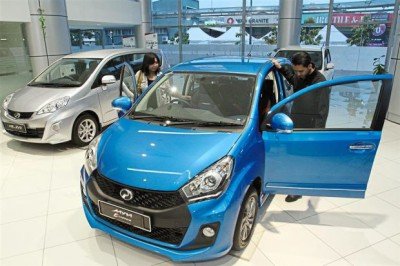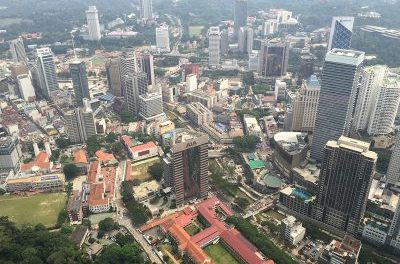DBKL: No tolerance for those who abuse PPR flats
Kuala Lumpur City Hall (DBKL) has warned that it will not tolerate with lessees of the People’s Housing (PPR) and Public Housing (PA) projects who rented out their houses to foreigners, saying that those who do not comply will have their houses confiscated. DBKL executive director of economic development, Datuk Mohd Sauffi Mohamad, said that based on a survey last year, 35% of the 46,454 units of PPR and PA houses were believed to have been rented out by the original recipients of the housing units. It was revealed that as of March this year, DBKL had repossess 150 PPR and PA housing units, while 490 units were seized and the recipients blacklisted last year. DBKL would continue to conduct checks at PPR and PA housing to ensure no breach of the lease agreement by recipients of the houses. (Astro Awani)
DAP: Bank of Johor should focus on rented housing
In a statement welcoming the proposal, Johor DAP said that the proposed Bank of Johor should minimise its exposure to real estate and property loans. It said there had been excessive lending by major commercial banks for real estate and property, which they called an unproductive sector. Such loans may become a form of “predatory lending” to people with lower income, and argued that the federal and state governments should focus on rent and rent-to-buy housing schemes to meet the housing needs of low and middle income families. It was suggested that the new bank focus on helping small and medium industries and agriculture sectors to transform, and to move Johor’s various sectors away from dependence on unskilled foreign labour in order to achieve a high wage, high skill and technology, and high productivity virtuous cycle. (Free Malaysia Today)
Spring Gallery bags building job for RM260m project
Spring Gallery Bhd has won a building contract from Prinsip Nusantara Sdn Bhd (PNSB) and Spring Gallery’s wholly-owned unit Profit Sunland Sdn Bhd (PSSB) to develop a RM260 million mixed development project in Johor. The development project located at Perling, Johor Bahru, has a GDV of RM260 million and gross development cost of RM176.5 million. The 2.44ha land, which currently houses the Johor State Tennis Academy, is to be built into a commercial development in accordance with Johor’s development policies. The academy will be relocated to Taman Nusa Duta, and the proposed mixed development project will consist of a three-storey shop office consisting of 18 units and two blocks of 25-storey medium end apartments with a total of 472 units. (The Edge Markets)
Karyon to dispose Sungai Buloh land for RM5.6mil
Karyon Industries Bhd is planning to dispose of a 0.2ha piece of leasehold land in Sungai Buloh, Selangor for RM5.6 million. Its wholly-owned subsidiary Karyon (Malaysia) Sdn Bhd (KMSB) is selling the plot to Scanwolf Plastic Industries Sdn Bhd, a wholly-owned unit of Scanwolf Corp Bhd. The land in Bandar Pinggiran Subang, with a 99-year lease expiring in 2096, has a corner detached factory built on it. KMSB ceased business in March 2015 and the disposal is an opportunity for the group to unlock the value of assets that do not contribute towards its core business. The disposal would also discharge the group from the property’s future holding and maintenance costs. (The Edge Markets)
Singapore’s Cogent to build new warehouse in Klang
Singapore-based Cogent Holdings will begin construction of a new warehouse on a plot of land measuring 9.6 acres in the Port Klang Free Zone. It is part of phase two following the completion of phase one of its warehouse and container depot facilities there. The construction works will cost S$8.9 million, and is expected to complete in April next year. Cogent says the new warehouse would enable the company to establish a “stronger foothold” in the warehousing market in PKFZ. (The Edge Markets SG)
Pengerang project to contribute RM18.3b to Malaysia’s gross income in 2020
Johor Mentri Besar Datuk Seri Mohamed Khaled Nordin said that the Pengerang Integrated Petroleum Complex (PIPC) near Kota Tinggit will contribute about RM18.3 billion to the nation’s gross income in 2020 when it begins full operations in 2019. The development would also spur growth of downstream activities like logistics, investment in harbour, cleaning services, maintenance, and others. This will not only make PIPC more efficient and effective, but also create synergy between Malaysia and Singapore in setting up a regional oil hub. The Johor MB’s statement came following a question by a lawmaker wanting to know whether the project was still relevant, as many companies were wary of investing in the oil and gas (O&G) industry due to uncertainty in the regional economy. (The Malay Mail Online)
 Malaysian consumers holding back on big-ticket purchases like cars
Malaysian consumers holding back on big-ticket purchases like cars
Consumers have been holding back their purchases in times of uncertainty, while financial institutions have seen lower profits and higher doubtful debts. Perodua sales fell for the first quarter ended March 31 as consumers responded to the week economy by holding off on buying big-ticket items like cars. Last Thursday, Perodua announced that its sales fell by 17.4% in the first quarter from 57,200 units a year ago. Malaysia Automotive Association (MAA) forecast Malaysia’s total industry’s volume to drop by 2.5% in 2016. Lower car sales, slower property market and slowdown in household loan growth are a grim indicator of the country’s lowered consumer demand and challenging times. Besides residential properties, cars are the second most expensive purchase most people make, which explains why economists look to car sales to gauge the country’s economic performance. (The Star Online)
Malaysia’s growing middle class will be spending more on healthcare
More money will be spent on healthcare in Malaysia as the country’s middle class group expands, ratings agency RAM Ratings said. Growing income levels and increased health awareness will spur higher healthcare spending in Malaysia and three other South-east Asian countries, namely Singapore, Thailand and Indonesia. RAM Ratings said that healthcare spending in Asean as a whole is still far below levels in developed nations, even though there has been rising demand from the region’s growing middle class group over the past 10 years. Healthcare spending worldwide is expected to grow to US$9.3 trillion (RM36.6 trillion) with a projected average annual growth of 5.2% between 2014 and 2018. (The Malay Mail Online)
Related post: Can Malaysia’s medical tourism industry help an ailing property market?





